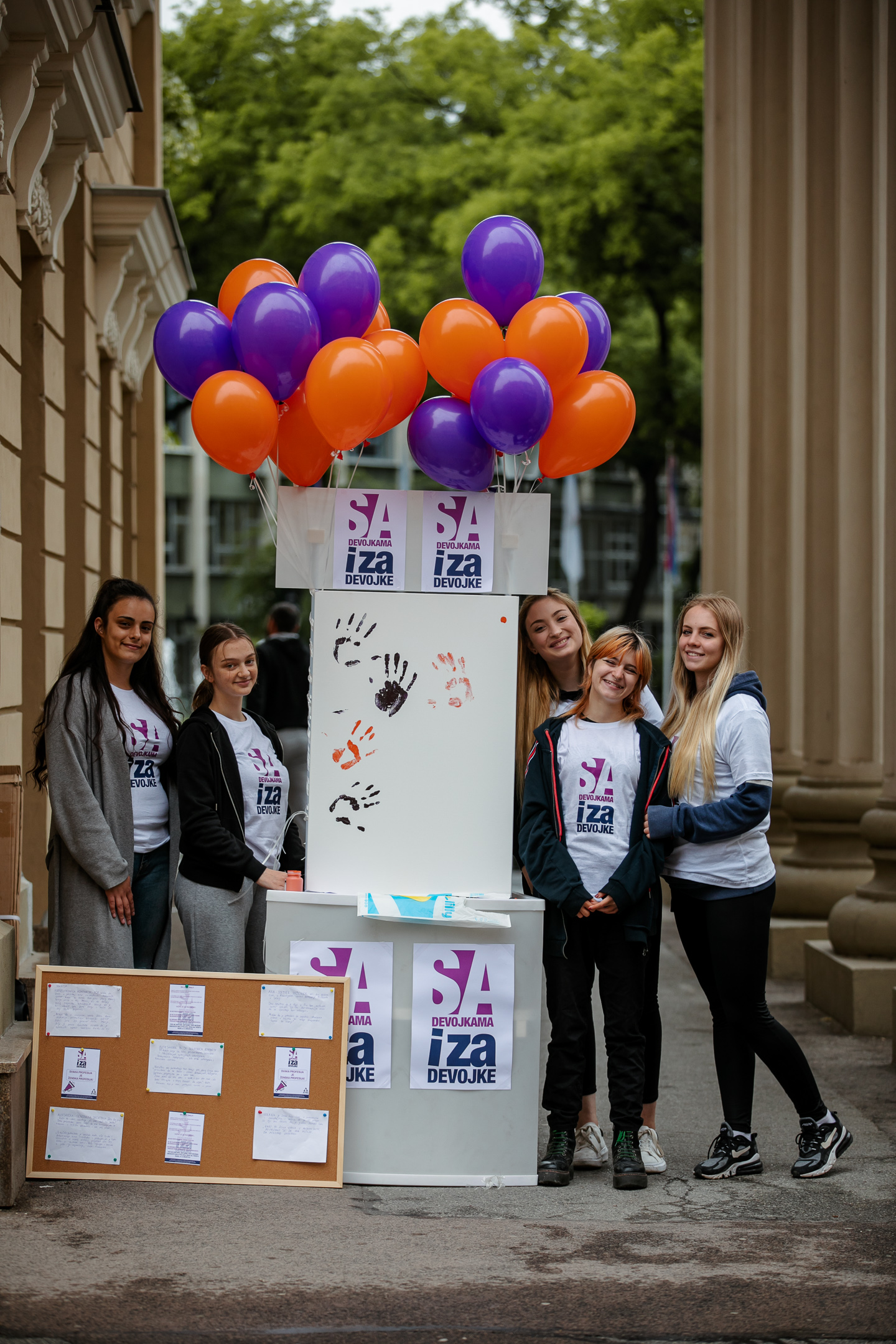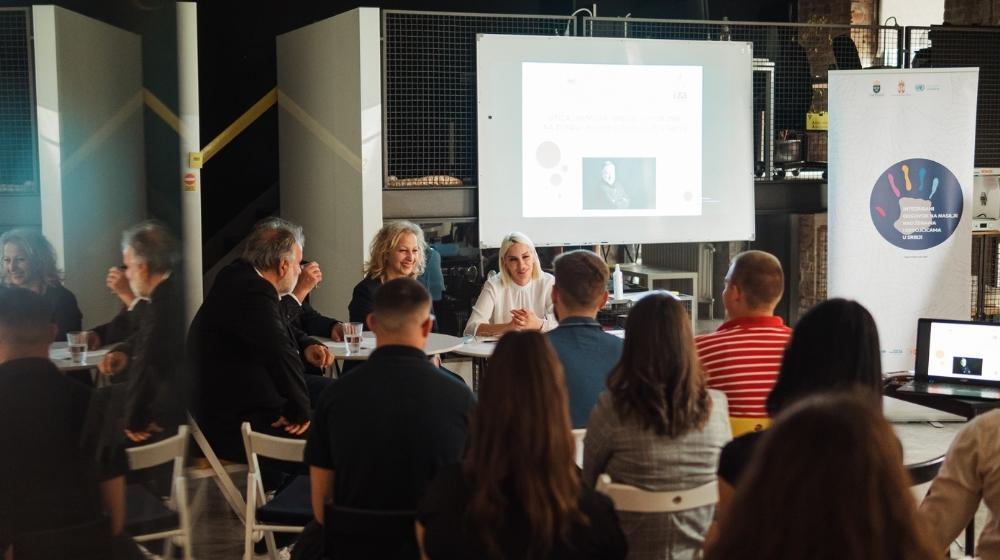"Most girls feel that they are not as safe in the digital space as boys. Most of them have also experienced or know someone who has been exposed to digital violence," - says Emilija Marković, coordinator of the Youth Office of Palilula Niš and one of the participants in the project "With girls and for girls" implemented by the NGO Atina with the support of United Nations Population Fund (UNFPA) in Serbia, which was completed in mid-2022.
As many as 78% of respondents believe they are not as safe in digital space as young men. However, more than half of the respondents (53.2%) state that they have survived violence in the digital space and that they know a peer who has survived digital violence, according to the report "In front of the screen," published earlier this year.

The publication "In front of the screen - Research on gender-based violence in the digital space" was presented in June 2022
Despite all this, violence in digital space would report only 10% of respondents, among girls in the final grades of secondary schools from Belgrade, Niš, and Subotica.
Girls do not report digital violence for another important reason, according to Emilija:
"What we recognized as one of the biggest problems during public actions and focus groups is that online violence is not sufficiently known, nor recognized in our society, and it is not given adequate attention as violence that occurs in physical space."
"Some of the most frequently documented cases are online stalking, harassment, video surveillance, the unauthorized use and manipulation of personal content such as pictures, videos or personal data and blackmail, and the increasingly frequent identity theft," adds Emilija.
The spreading influence of social networks has intensified existing forms of gender-based violence and created new mechanisms for harming girls and women online.
Digital violence perpetrated against girls and women has unfathomable consequences and increases the isolation and inequality of girls and women; that is, it creates a vicious cycle of violence from which it is difficult for them to get out.
During the project, girls in Belgrade, Niš, and Subotica cooperated with local youth offices and initiated public actions with their peers. They discussed gender equality, gender-based violence, and especially violence in the digital space. The research "In Front of the Screen" results greatly helped the girls design their activities.
At ten public actions organized this year, girls and boys exchanged opinions and sent a clear message against all forms of inequality and violence. These messages reached over two thousand young people in Nis, Belgrade, and Subotica.
"Do not ever put up with anything you do not want to and that endangers you in any way," advises Emilija.
The United Nations Population Fund in Serbia is actively working to create systemic solutions and responses to gender-based violence: breaking gender stereotypes, strengthening public policies and services, including men and boys, collecting data, targeting the education and empowerment of girls and women in Serbia.
*The project "With girls and for girls" was conducted in the framework of the joint project Integrated Response to Violence against Women and Girls in Serbia III, implemented by UNICEF, UN Women, UNFPA and UNDP, in partnership with the Government of the Republic of Serbia, coordinated by the Coordination Body for Gender Equality. Joint project is aimed at the development of a social and institutional environment that will contribute to zero tolerance and the eradication of violence against women in Serbia. Through joint action, UN agencies and government bodies contribute to tackling the problem of domestic violence and partnerships, enhancing support for women, girls and their families and creating an environment that does not tolerate violence.
The project is being implemented with the support of the Swedish Government.

Participants in the project "With girls and for girls"* at a public action in Subotica


